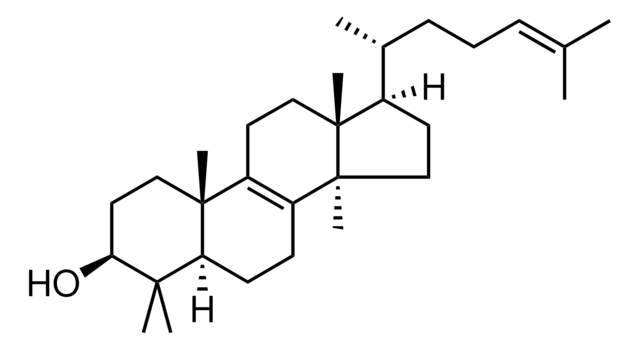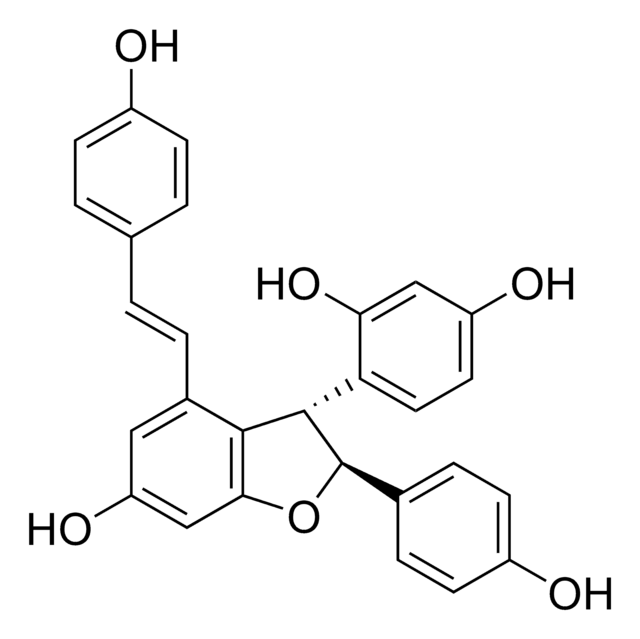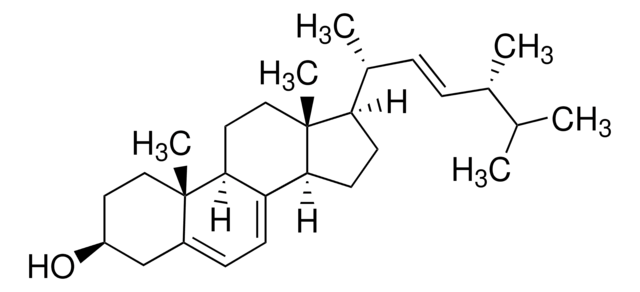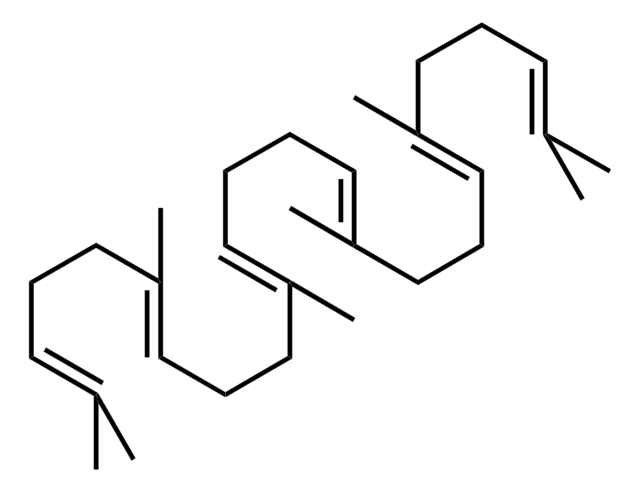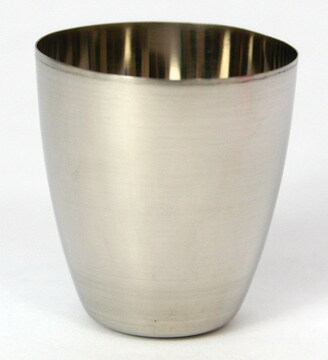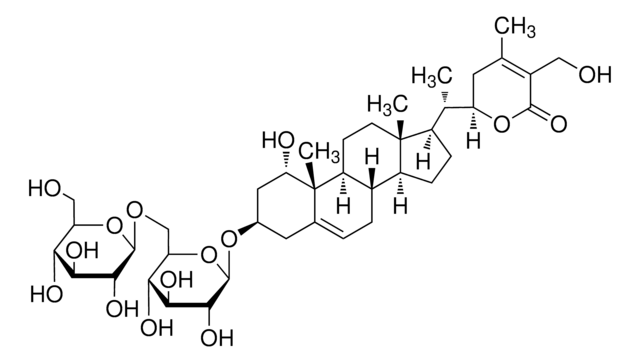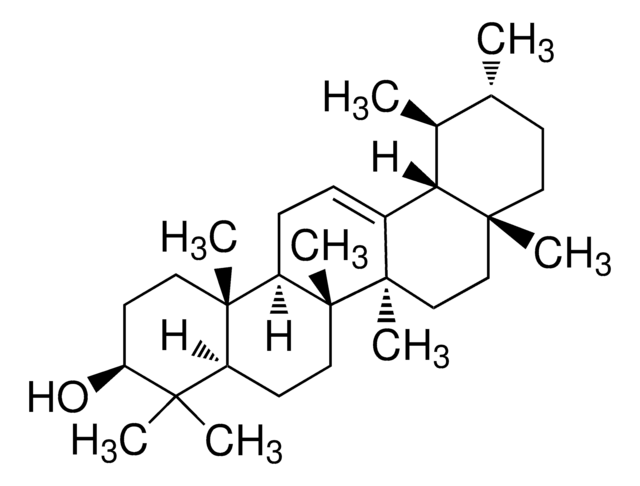41719
(3S)-2,3-Oxidosqualene
≥97.5% (HPLC)
Synonyme(s) :
(S)-2,3-Epoxy-2,3-dihydrosqualene, (S)-22,23-Epoxy-2,6,10,15,19,23-hexamethyl-2,6,10,14,18-tetracosapentaene, (S)-Squalene 2,3-epoxide, (S)-Squalene 2,3-oxide
About This Item
Produits recommandés
Pureté
≥97.5% (HPLC)
Forme
liquid
Pureté optique
enantiomeric excess: ≥90.0%
Adéquation
conforms to structure for Proton NMR spectrum
Température de stockage
−20°C
Chaîne SMILES
CC1(C)O[C@H]1CC/C(C)=C/CC/C(C)=C/CC/C=C(C)/CC/C=C(C)/CCC=C(C)C
InChI
1S/C30H50O/c1-24(2)14-11-17-27(5)20-12-18-25(3)15-9-10-16-26(4)19-13-21-28(6)22-23-29-30(7,8)31-29/h14-16,20-21,29H,9-13,17-19,22-23H2,1-8H3/b25-15+,26-16+,27-20+,28-21+/t29-/m0/s1
Clé InChI
QYIMSPSDBYKPPY-RSKUXYSASA-N
Application
- Schizophrenic behavior of 2,3-Oxidosqualene Sterol Cyclase from pig liver towards 2,3-oxidosqualene analogues. Alain Krief and colleagues discuss the variable catalytic behaviors of oxidosqualene cyclase when interacting with different oxidosqualene analogues, suggesting implications for sterol production efficiency and specificity (Krief et al., 2021).
Actions biochimiques/physiologiques
Code de la classe de stockage
10 - Combustible liquids
Classe de danger pour l'eau (WGK)
WGK 3
Point d'éclair (°F)
Not applicable
Point d'éclair (°C)
Not applicable
Certificats d'analyse (COA)
Recherchez un Certificats d'analyse (COA) en saisissant le numéro de lot du produit. Les numéros de lot figurent sur l'étiquette du produit après les mots "Lot" ou "Batch".
Déjà en possession de ce produit ?
Retrouvez la documentation relative aux produits que vous avez récemment achetés dans la Bibliothèque de documents.
Les clients ont également consulté
Notre équipe de scientifiques dispose d'une expérience dans tous les secteurs de la recherche, notamment en sciences de la vie, science des matériaux, synthèse chimique, chromatographie, analyse et dans de nombreux autres domaines..
Contacter notre Service technique
